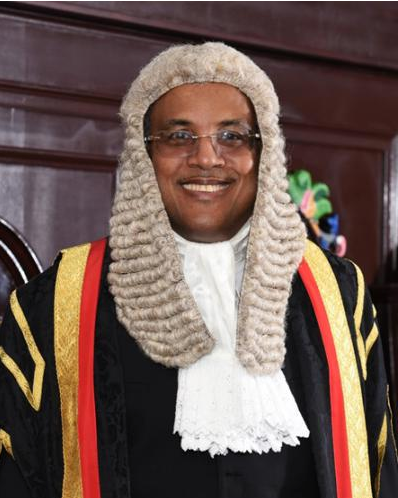Three of five judges agree with Winder’s ruling; Barnett and Evans disagree
“Of course, the ultimate decision will rest with the Bahamian public in a referendum”
NASSAU, BAHAMAS — The Court of Appeal yesterday upheld a historic Supreme Court ruling that children born out of wedlock to foreign women and Bahamian men are entitled to citizenship at birth.
The government had sought to appeal a ruling by Supreme Court Justice Ian Winder handed down last May over the true interpretation of Article 6 of the Constitution.
The appellate ruling dismissed the government’s appeal and awarded costs to the respondents.
All five judges of the Court of Appeal — Sir Michael Barnett, Justice Jon Isaacs, Justice Maureen Crane-Scott, Justice Roy Jones and Justice Milton Evans — sat in on the hearing and gave written judgments on the matter.
Winder’s ruling dealt with separate applications for declarations over the true interpretation of Article 6 of the Constitution, which deems that “every person born in The Bahamas after 9th July, 1973 shall become a citizen of The Bahamas at the date of his birth if at that date either of his parents is a citizen of The Bahamas”.
Winder ruled that children born out of wedlock to foreign women and Bahamian men are entitled to citizenship at birth; however, the government outlined four specific grounds for the appeal, arguing that Winder erred and misdirected himself in his position on the language and interpretation of the two articles in question.

In her judgment, Crane-Scott said the result of forcing Article 14 (1) of the Constitution into the language of Article 6 goes against the fundamental rights of the Constitution itself, affording different treatment to individuals born in The Bahamas simply because they were born out of wedlock.
She agreed with Winder’s judgment that such a construction would result in the “disentitlement to automatic citizenship of an entire class of persons born on Bahamian soil to Bahamian men, merely because of the marital status of their parents at the date of their birth”.
Crane-Scott said the learned judge applied correct canons of statutory interpretation and justified his conclusions.

Issacs noted in his judgment that the appellant seeks to have the courts amend the “very clear words” of Article 6 by the process of interpretation, which “we ought not to do”.
Issacs insisted that the wording leads inexorably to the conclusion that the intent is to avoid any apparent discriminatory feature in the Constitution and places both the mother and the father of the child on an equal footing with no regard as to any artificial differentiation of legitimate or illegitimate.
He said the various complaints by the appellants against Winder’s decision “are without substance”.

Jones said his judgment was Winder “properly relied on the canon of construction that a change in language indicates a different intent”.
While the majority of appellate judges ultimately agreed with the Supreme Court ruling, Barnett and Evans offered dissenting views on the matter.

In his judgment, Sir Michael indicated he would allow the appeal and set aside the decision on the basis that the effect of Article 6 is that a person born in The Bahamas after Independence inherits the Bahamian citizenship of either his or her mother or father, subject to the qualification that if that person is born out of wedlock, he or she can only inherit citizenship through his or her mother.
Meanwhile, Evans noted the framers of the Constitution chose to remove the entitlement to citizenship based on birth in The Bahamas alone and combine it with descent from a Bahamian parent.

Evans added that Article 6 and 14 must be construed with the reality that the framers of the Constitution took “deliberate steps to ensure that citizenship in the post-Independence Bahamas is not automatically granted to persons born in The Bahamas out of wedlock by virtue of descent from their ‘fathers’”.
“This will remain the reality until Parliament finds a proper way to deal with this most unfortunate situation,” he said.
“Of course, the ultimate decision will rest with the Bahamian public in a referendum.”






